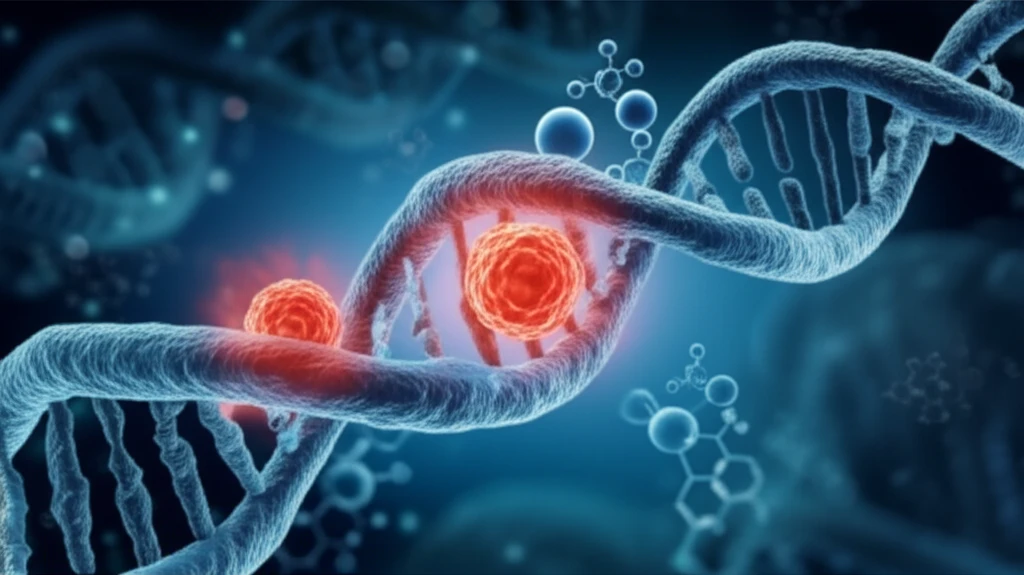
Decoding Colorectal Cancer: How Gene Analysis Could Revolutionize 5-FU Drug Response
"Unlocking the secrets of thymidylate synthase (TS) gene structure in colorectal cancer patients to improve treatment outcomes and personalize drug therapies."
Thymidylate synthase (TS) is a crucial enzyme in DNA synthesis, essential for cell division and growth. It works by catalyzing the methylation of deoxyuridine monophosphate (dUMP) into deoxythymidine monophosphate (dTMP). This process is a cornerstone of DNA production, making TS a key target for cancer therapies.
Because of its vital role, TS has become a prime target for various chemotherapeutic agents, most notably 5-Fluorouracil (5-FU). This drug and its related forms, like capecitabine, along with newer TS inhibitors like raltitrexed and pemetrexed, are widely used in treating colorectal and other solid tumors. These drugs work by inhibiting TS, thereby disrupting DNA synthesis and halting cancer cell growth.
However, resistance to these drugs can develop through various mechanisms, including increased levels of TS within cancer cells. Understanding how TS levels and its gene structure affect drug sensitivity is critical for improving treatment outcomes and personalizing cancer therapies.
The Role of TS Gene Analysis in Predicting Drug Response

Research indicates that the level of TS expression within colorectal cancer cells can predict how sensitive a patient's tumor will be to 5-FU and other TS-inhibiting drugs. High TS expression in early-stage colorectal cancer often correlates with poorer survival rates, even when patients undergo chemotherapy after surgery. Conversely, lower TS levels may indicate a better response to 5-FU-based treatments, especially in metastatic settings.
- High TS Expression: Often linked to poorer survival, especially in early-stage CRC.
- Low TS Levels: May indicate better response to 5-FU treatment, particularly in metastatic CRC.
- TS Gene Structure: Analysis can reveal variants affecting drug sensitivity.
Future Directions and Implications
While this study did not identify any TS-DNA variant structures in the analyzed colorectal cancer samples, the quest to understand and overcome drug resistance continues. Future research should expand the analysis to metastatic CRCs, where higher genomic instability might reveal structural changes in the TS gene. Identifying these variants could unlock new strategies for personalizing cancer treatment and improving outcomes for patients facing this challenging disease. Ultimately, a deeper understanding of the TS gene could lead to more effective, targeted therapies that overcome resistance and improve survival rates.
